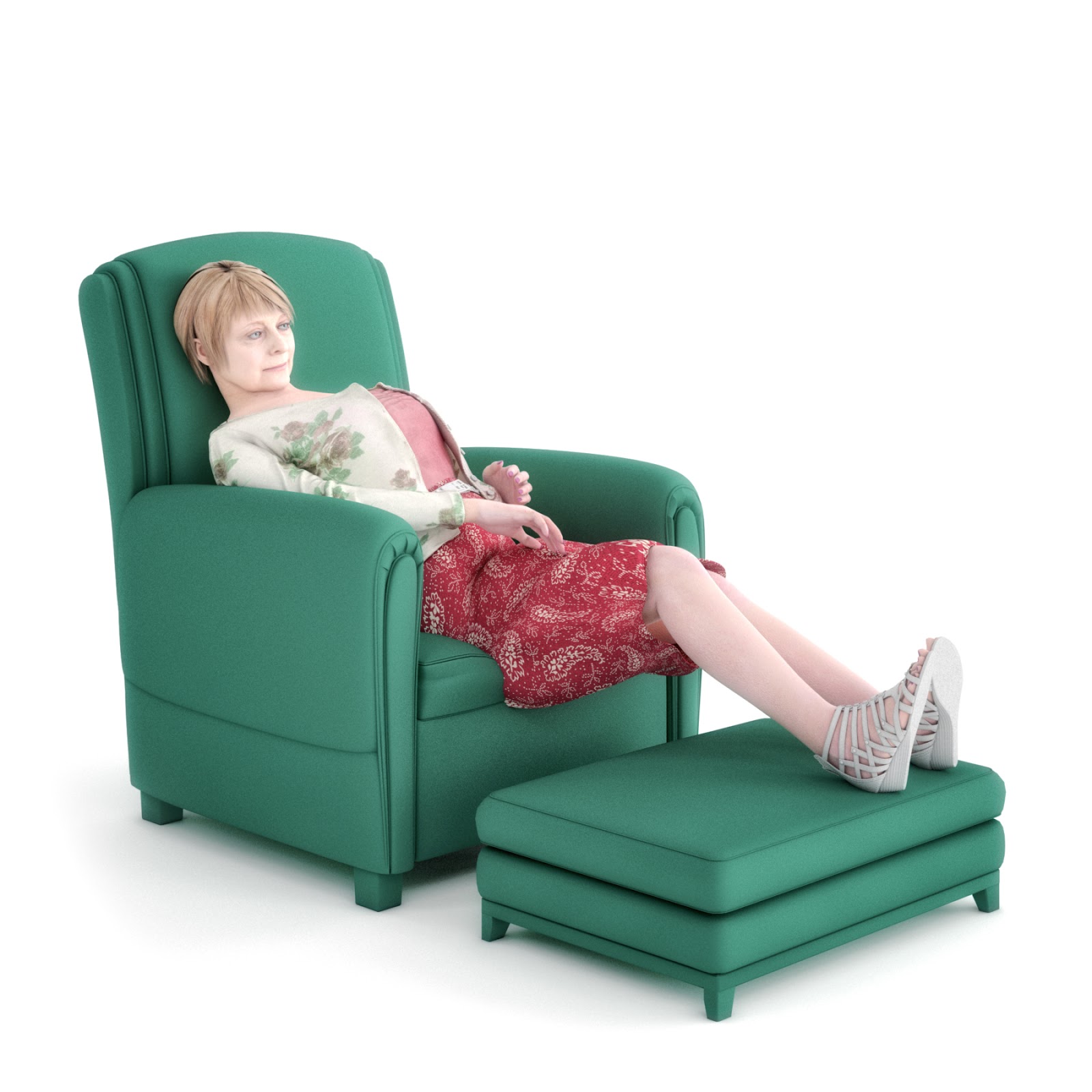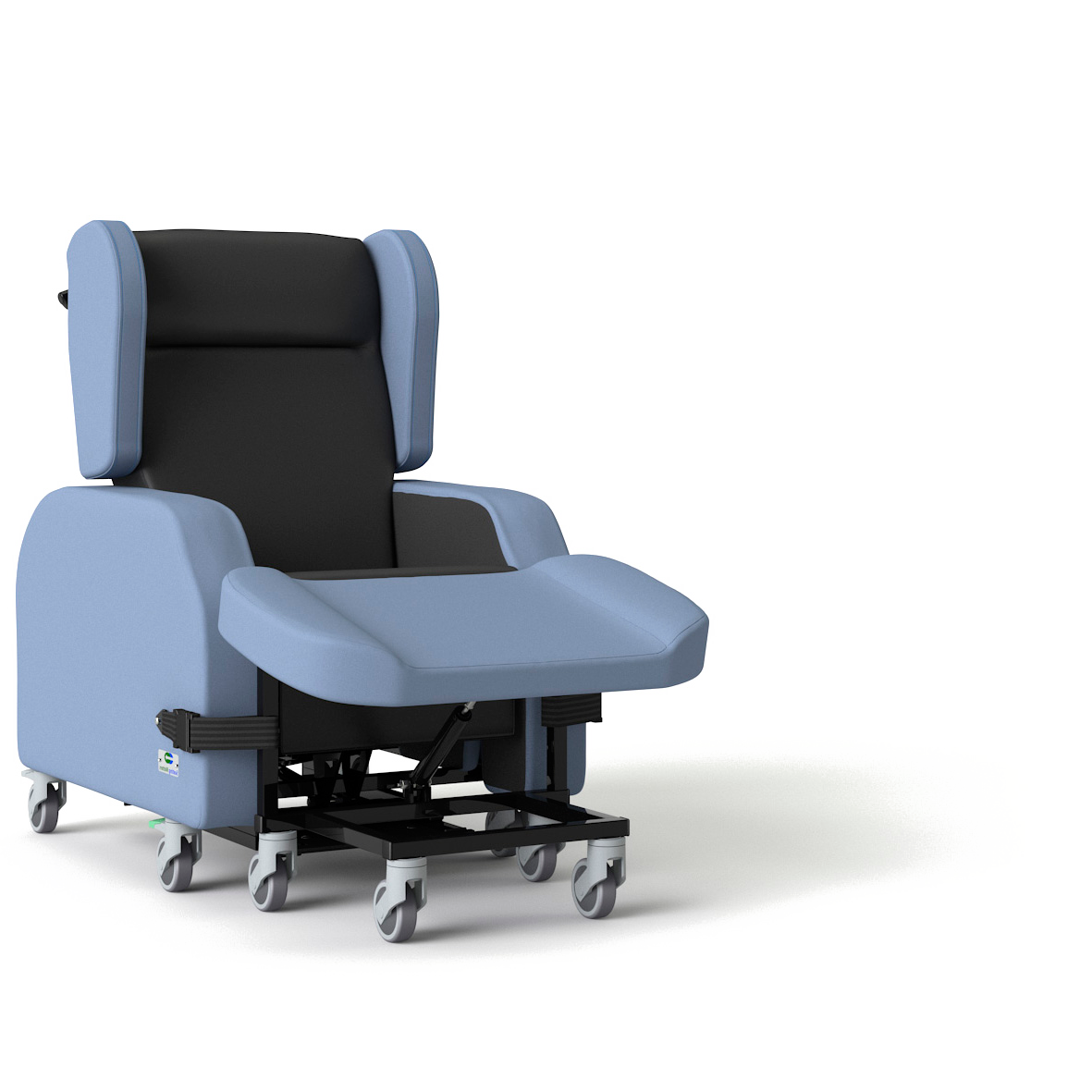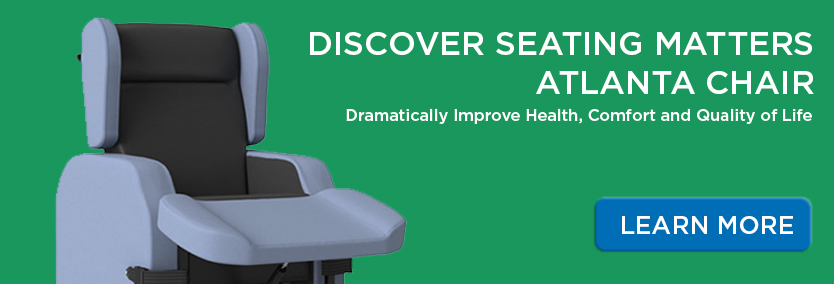Wilma, an 89 year old female, had advanced dementia and Parkinson’s disease. Wilma was non ambulatory and had to be hoisted for all transfers. As a result of her complex needs, getting the correct chair was difficult, but necessary in order to combat the recurring urinary tact infections (UTI’s) and chest infections from which she had suffered as a result of poor posture.
Wilma was part of the control group during the research project, this meant that she remained in her existing nursing home chair for the duration of the project, whilst being monitored by the research team and occupational therapists.
Wilma was seated in the chair illustrated below, which caused her multiple problems including continual sliding down the chair and falling to her right hand side, therefore requiring a lot of ‘postural correction’ by caregivers. Due to the shearing forces from constantly sliding from the chair, Wilma was developing red areas on her sacrum. In order to combat this, she used an extra pressure management cushion, purchased in addition to her chair and placed on top of the existing cushion, altering the chair dimensions.
Upon assessment, it was confirmed that amongst other limitations, Wilma had significantly impaired hip flexion, which was one of the key factors causing her to slide from the chair. She was also continually slumped to her right hand side, caused by pelvic obliquity and causing additional problems such as abnormal curvature of the spine, impaired respiration, impaired physiological functioning, as well as discomfort and pain.

With the limited knowledge and resources available to her caregivers, they transferred Wilma to another chair and purchased alternative pressure management cushions in an attempt to improve her well-being.
Following the 12-week trial period, a reassessment was carried out on Wilma and it was found that many of her initial problems remained: she still fell to one side, sat in a pelvic obliquity and her feet were still unsupported. The fixed angle of the chair didn’t support her hip flexion, meaning that she was in danger of redness from ‘sacral sitting.’ The lack of head and neck support also contributed to poor posture.
Had Wilma been matched with a recommended Seating Matters Chair the following benefits would be have been recorded:
- Significant reduction in the need for postural correction.
- Purchase of additional cushions would have been unnecessary.
- Tension and high-tone could have been reduced with adequate support.
- Functional ability could have been increased with improved posture, allowing her to spend more energy on activities, rather than on maintaining posture and holding her core.
Recommended Seating Matters Chair: Atlanta. Click Here to Learn More.

** This post was originally published on http://blog.seatingmatters.com/wilmas-story

